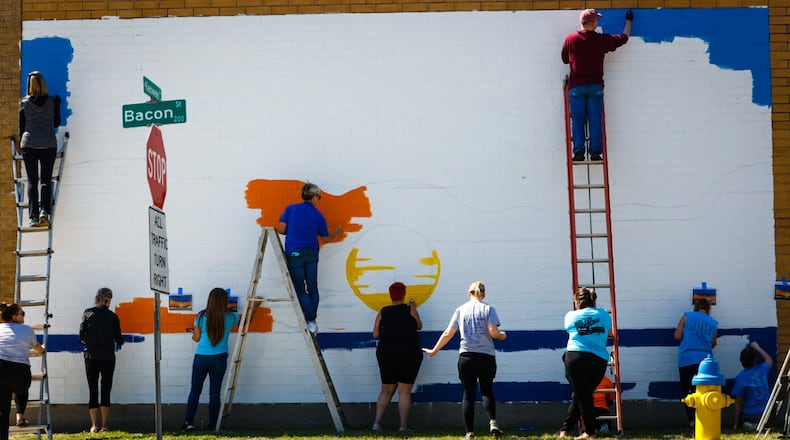Dayton had an inpatient psychiatric hospital until Twin Valley closed 16 years ago due to state budget cuts.
In an interview this week confirming the state is putting $10 million toward the first phase of planning a new facility, Ohio Gov. Mike DeWine said he intends for Dayton’s new hospital to “be night and day compared to what was in Dayton before.”
Currently, most of the Dayton region falls into the jurisdiction of Summit Behavioral Healthcare Hospital in Cincinnati, which has been a challenge to get space in for local patients. Summit has become an increasingly forensic mental health hospital, meaning it has a focus on serving individuals who are in the custody of the criminal justice system.
“A county of our size needs to have a specialty hospital for people who are struggling with behavioral health challenges,” Jones-Kelley said.
Law enforcement
Dayton Police Maj. Christopher Malson provided data showing the strain that mental health issues are putting on local law enforcement.
Dayton police responded to 5,952 calls for service designated with a mental health-related call type in 2023, though other call types can have a mental health aspect to them.
“All members of the Dayton Police Department, and more specifically, our Mobile Crisis Response Team (MCRT) and our officers who have received Crisis Intervention Team (CIT) training, recognize that individuals suffering from these challenges deserve special care, treatment, and service,” Malson said. “The Dayton Police Department looks forward to working with any future partners who will help those dealing with mental health or substance abuse problems.”
Local lawmakers
DeWine said he decided to pursue funding for the facility about two months ago. Local lawmakers on both sides of the aisle expressed support.
When asked about the project this week, state Rep. Andrea White, R-Kettering, told this news organization that “100%, we have a crisis in mental health services” in southwest Ohio. She welcomed the state’s funding to address mental health.
“We need more outpatient (care), we need more inpatient (care), we need places for our hospitals who are keeping individuals because they’re not well enough to return home but they need to be transitioned because the hospital isn’t the right place for them at that point,” said White.
State Rep. Willis Blackshear Jr., D-Dayton, called the proposed state funding “a tremendous step in the right direction. We need to develop the means to properly care for individuals with behavioral health conditions and make sure that their needs are met.”
Probate courts not waiting
Local officials are still waiting to hear more details about this hospital. While they are waiting for it, they plan to keep building out resources in the community.
“We are encouraged that the discussion regarding allocation of resources has turned to beds, which has been the fundamental problem for civil commitments and the response to the mental health crisis generally,” said Montgomery County Probate Court Judge David Brannon.
The Probate Court will continue ramping-up outpatient treatment and monitoring as it will likely take years to see the end results of any hospital buildout, he said. Individuals will also be discharged into the community and will need outpatient treatment.
“In the meantime, stakeholders from the hospitals to law enforcement should be encouraged to voice their needs and core services openly so that we have an ecosystem that works for everyone,” Brannon said.


